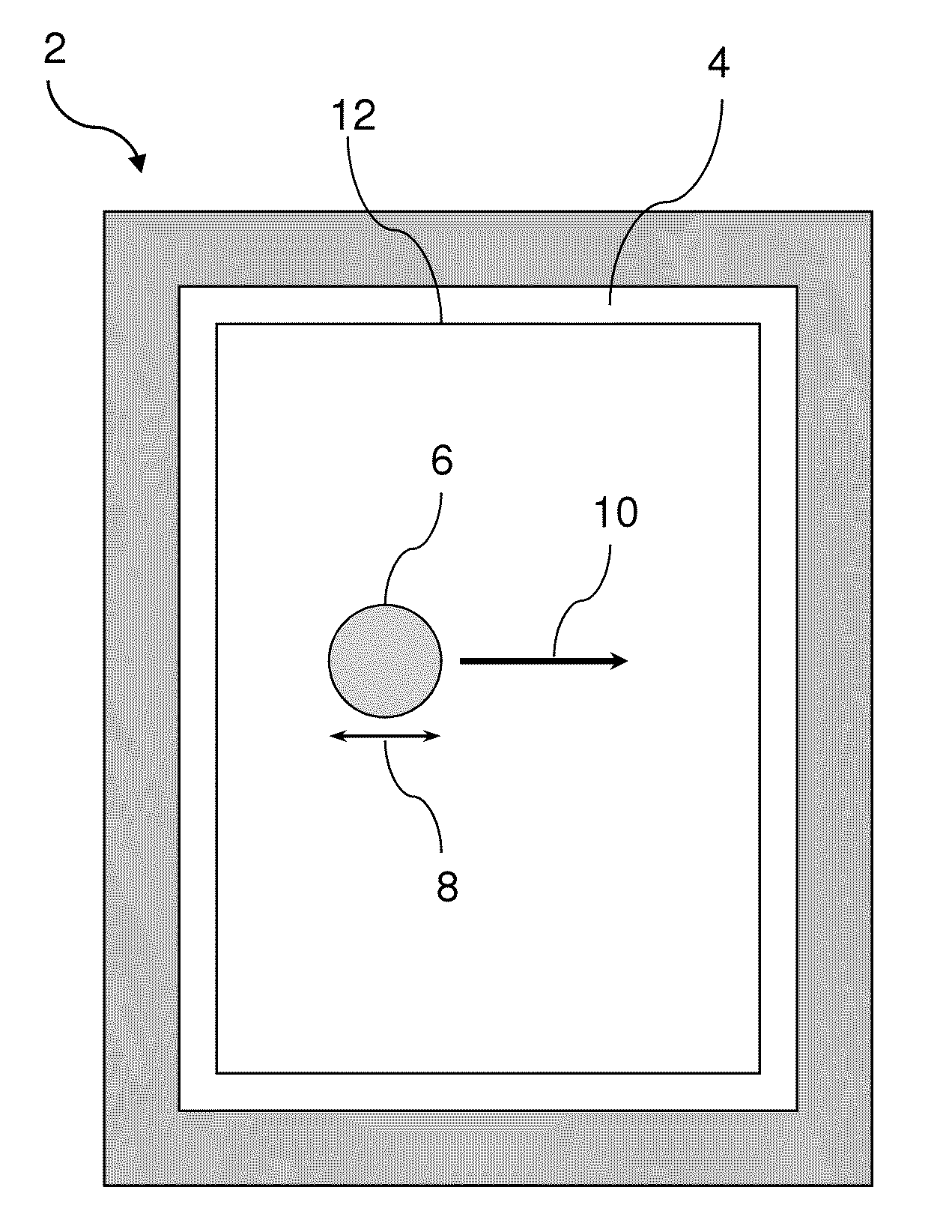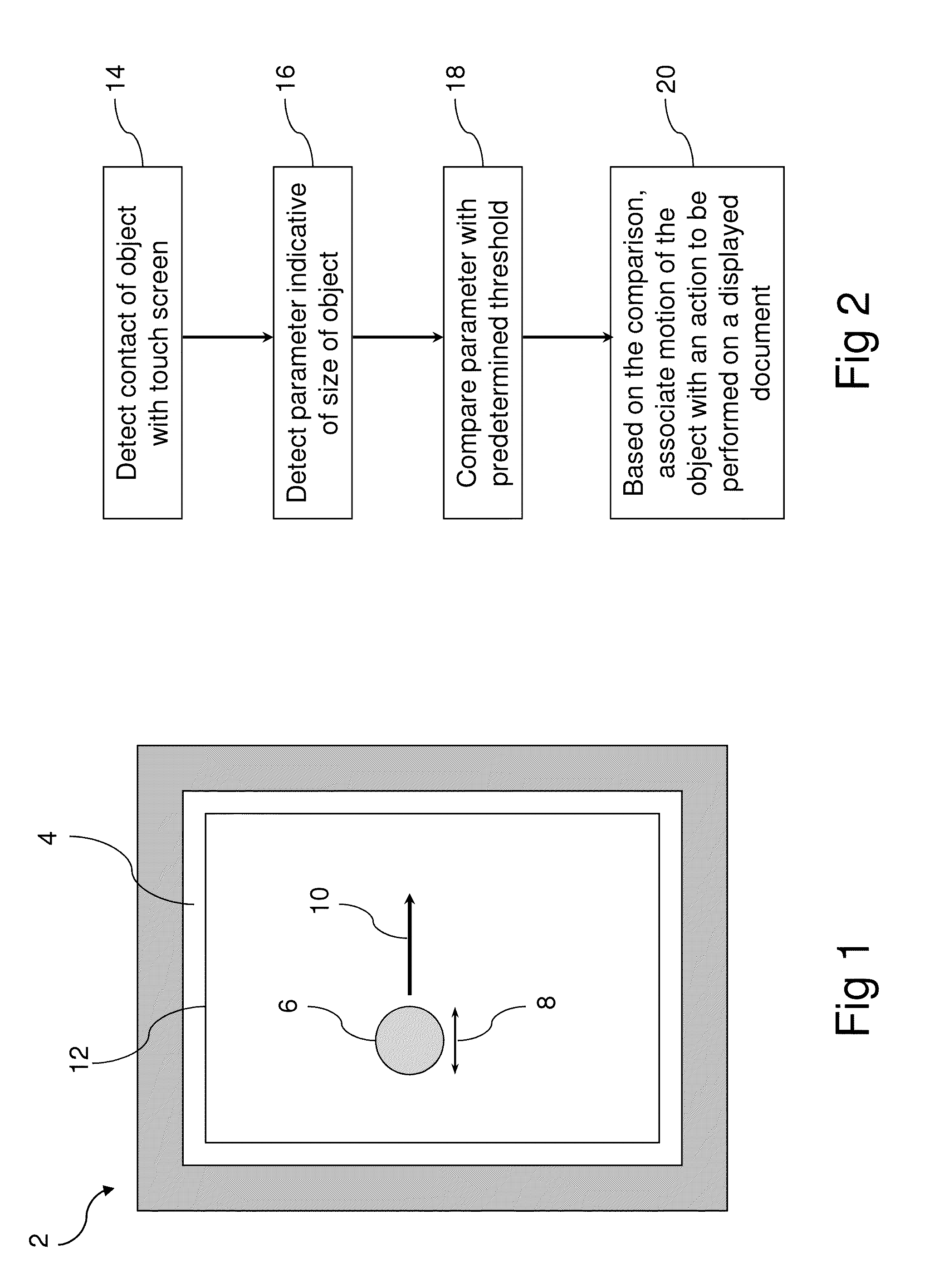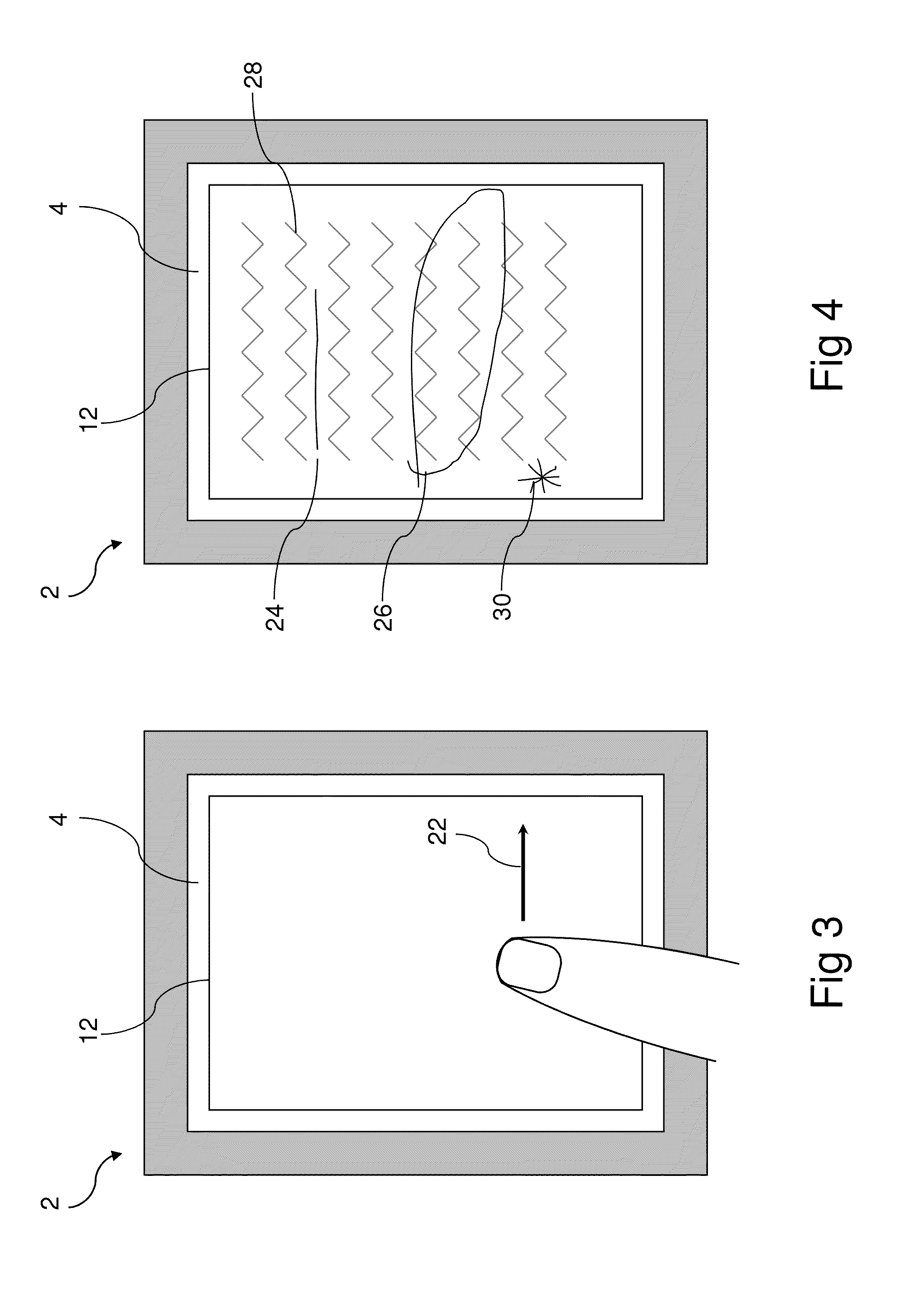Methods for interacting with an on-screen document
a technology of on-screen document and interface, applied in the field of methods for interacting with on-screen documents, can solve the problems of degrading the viewability of the display, and the inability to readily detect finger touch
- Summary
- Abstract
- Description
- Claims
- Application Information
AI Technical Summary
Benefits of technology
Problems solved by technology
Method used
Image
Examples
Embodiment Construction
[0046]FIG. 1 shows in plan view an electronic reader 2 with a touch-enabled display area 4 (i.e. a touch screen) that can sense contact of an object 6, determine a parameter 8 indicative of the size or shape of the object, and track motion 10 of the object across the touch screen. In the example shown in FIG. 1 the parameter is a size-related parameter in the form of a measure of a width of the object, but alternatively the parameter may be in the form of a measure of the area of the object, or it may be a shape-related parameter such as a ratio of width measures in two axes. Those skilled in the art will appreciate that with some types of touch screen (e.g. infrared or surface acoustic wave) it is convenient to measure a width of a touch object based on the number of energy paths occluded, while with other types of touch screen (e.g. projected capacitive or in-cell optical) it is convenient to measure an area of a touch object based on the number of nodes with which the object inte...
PUM
 Login to View More
Login to View More Abstract
Description
Claims
Application Information
 Login to View More
Login to View More - R&D
- Intellectual Property
- Life Sciences
- Materials
- Tech Scout
- Unparalleled Data Quality
- Higher Quality Content
- 60% Fewer Hallucinations
Browse by: Latest US Patents, China's latest patents, Technical Efficacy Thesaurus, Application Domain, Technology Topic, Popular Technical Reports.
© 2025 PatSnap. All rights reserved.Legal|Privacy policy|Modern Slavery Act Transparency Statement|Sitemap|About US| Contact US: help@patsnap.com



